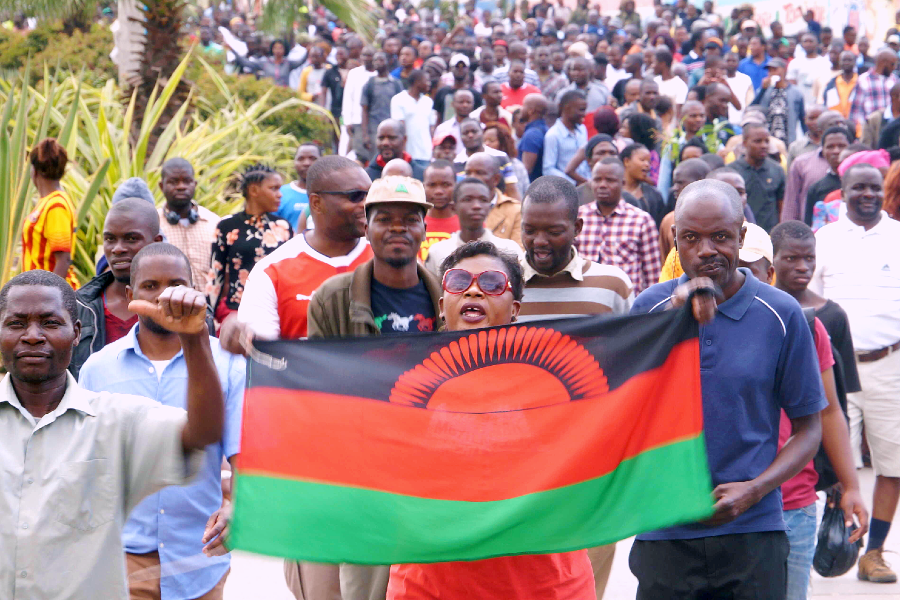Citizen Commitment – How Fragile States in Sub-Saharan Africa can Thrive
 Fragile states are nations whose institutions of governance are highly susceptible to corruption, deception, and bias. According to the Fund for Peace, the vast majority of Sub-Saharan Africa countries qualify as moderately to severely fragile states. Why? Because African institutions are weak and dysfunctional, and leaders manipulate their systems with impunity. If the fragility fiasco is to be changed, African people need to realize that neither their leaders nor international observations can fix the issue; only the people hold the power to determine their future.
Fragile states are nations whose institutions of governance are highly susceptible to corruption, deception, and bias. According to the Fund for Peace, the vast majority of Sub-Saharan Africa countries qualify as moderately to severely fragile states. Why? Because African institutions are weak and dysfunctional, and leaders manipulate their systems with impunity. If the fragility fiasco is to be changed, African people need to realize that neither their leaders nor international observations can fix the issue; only the people hold the power to determine their future.
Despite the tumultuous conditions in many nations in the Sub-Saharan continent, there is hope. The recent Malawian election demonstrated that despite weak local institutions and inadequate support from the international community, change can be made if citizens unite and demand accountability for corruption and abuses of power. When Malawians realized the outcome of their late 2019 presidential election was rigged, they took matters into their own hands. Even though six international observers, including the United Nations Development Program, Southern African Development Community, European Union, and African Union, argued that the elections were free and fair, overwhelming evidence of ballot tampering suggested otherwise.
The result was a great victory for Malawi’s future as a democracy, but how did they achieve it? Malawians turned out in the streets to demand accountability. When President Mutharika directed the police to beat protesters, the opposition united in common cause to reclaim democracy. Instead of acting with their usual selfishness that has in the past allowed the incumbent to conquer his divided opponents, the nine opposition parties uncharacteristically unified to oppose police brutality. Seeing the rare show of party unity, the army joined in to challenge the state’s violence. In turn, the Malawian Supreme Court became involved and ruled that the election was in fact rigged in favour of the incumbent. With the will of the people on full display, the court rejected a bribe offered by Mutharika.
Instead, the court sided with the protestors and called for new elections. The nine opposition parties united to support one candidate who could win the Spring 2020 election to ensure that Mutharika was deposed. Lazorus Chakwera won handily with 58 percent of the vote.
Is the victory of President Chakwera a new precedent for democracy in Sub-Saharan Africa? The Malawian example demonstrates that even with relatively weaker institutions, a united citizenry can demand accountability in a fragile state by mobilizing and convincing state powers that it is in their interest to support and protect the masses. The Malawian court’s decision to put the nation over its own self-interests demonstrates that even with highly compromised institutions, fragile states can also demand accountability if the united citizenry is protected and supported.
When citizens are protected from abuses, brutality, and intimidation, they can withstand and challenge their leaders’ abuses of power without fear. States where protesting is a serious legal offense, such as DR Congo and Zimbabwe, have a serious disadvantage compared to Malawi, but change must still come from below. Thus, organizations must emphasize promoting citizens’ rights from abuses to potentially allow citizens to claim freedom of speech even where it is suppressed. If the lack of strong institutions that promote transparency and enforce accountability is one of the biggest problems in fragile states, helping local citizens improve their civic capacities could potentially compel weaker institutions to prioritize the will of the people over despots.
What are some of the lessons other Sub-Saharan fragile states can learn from the case of Malawi? First, change requires citizens whose outrage and frustration have finally exceeded their fear of government retribution, and who take decisive action. Second, it takes opposition politicians who are actually willing to place their own personal or party ambitions beneath the good of the nation. Third, leaders of different branches of government, like the courts or the military, must start looking to the citizens instead of self-interested leaders and reject bribes and influence-peddling. The Malawi example shows that with these three ingredients, even a tyrant can be overthrown when citizens are committed to self-determination.
Related posts:
Category: AFRICA, INTERNATIONAL LAW & HUMAN RIGHTS, POLITICS

